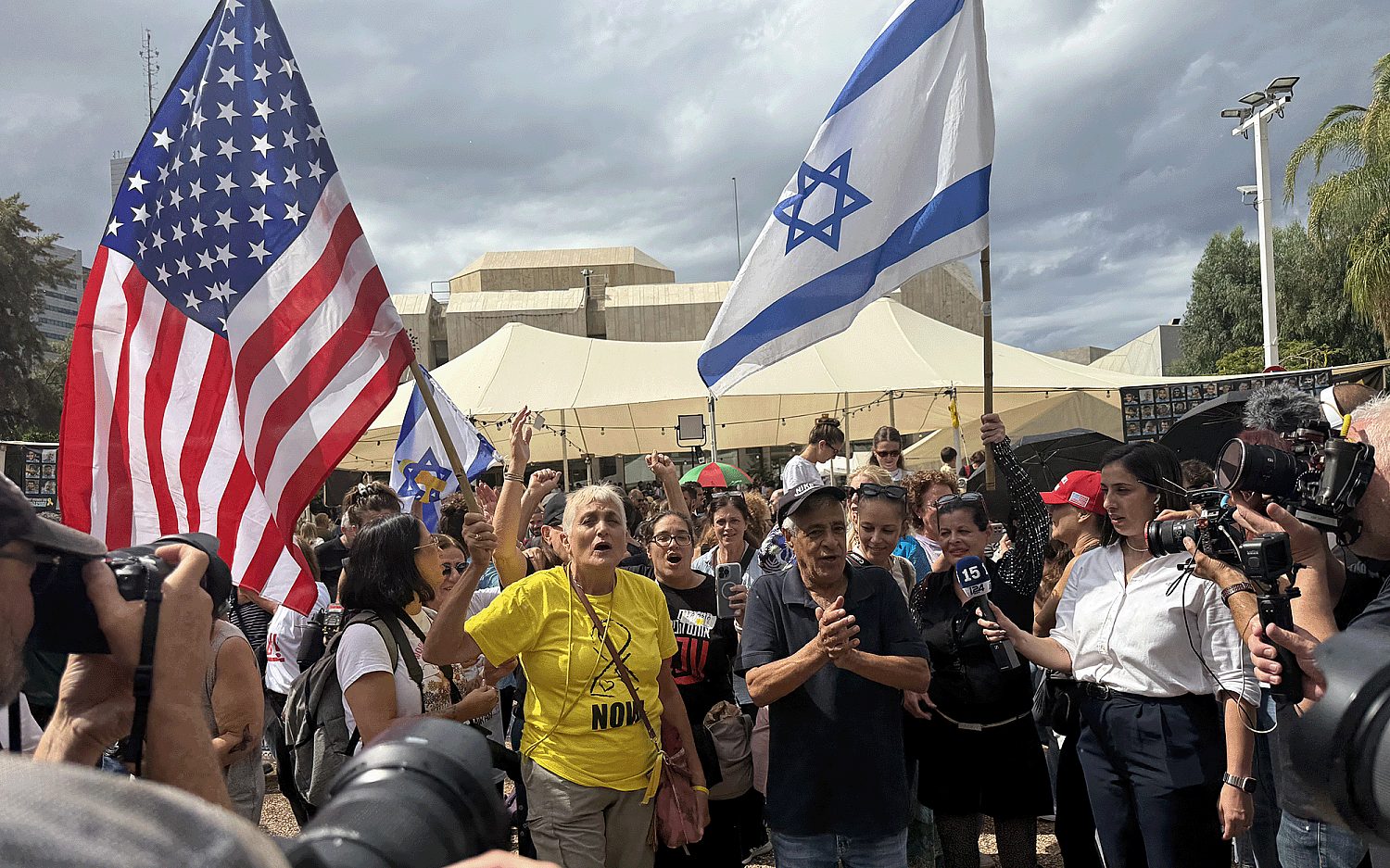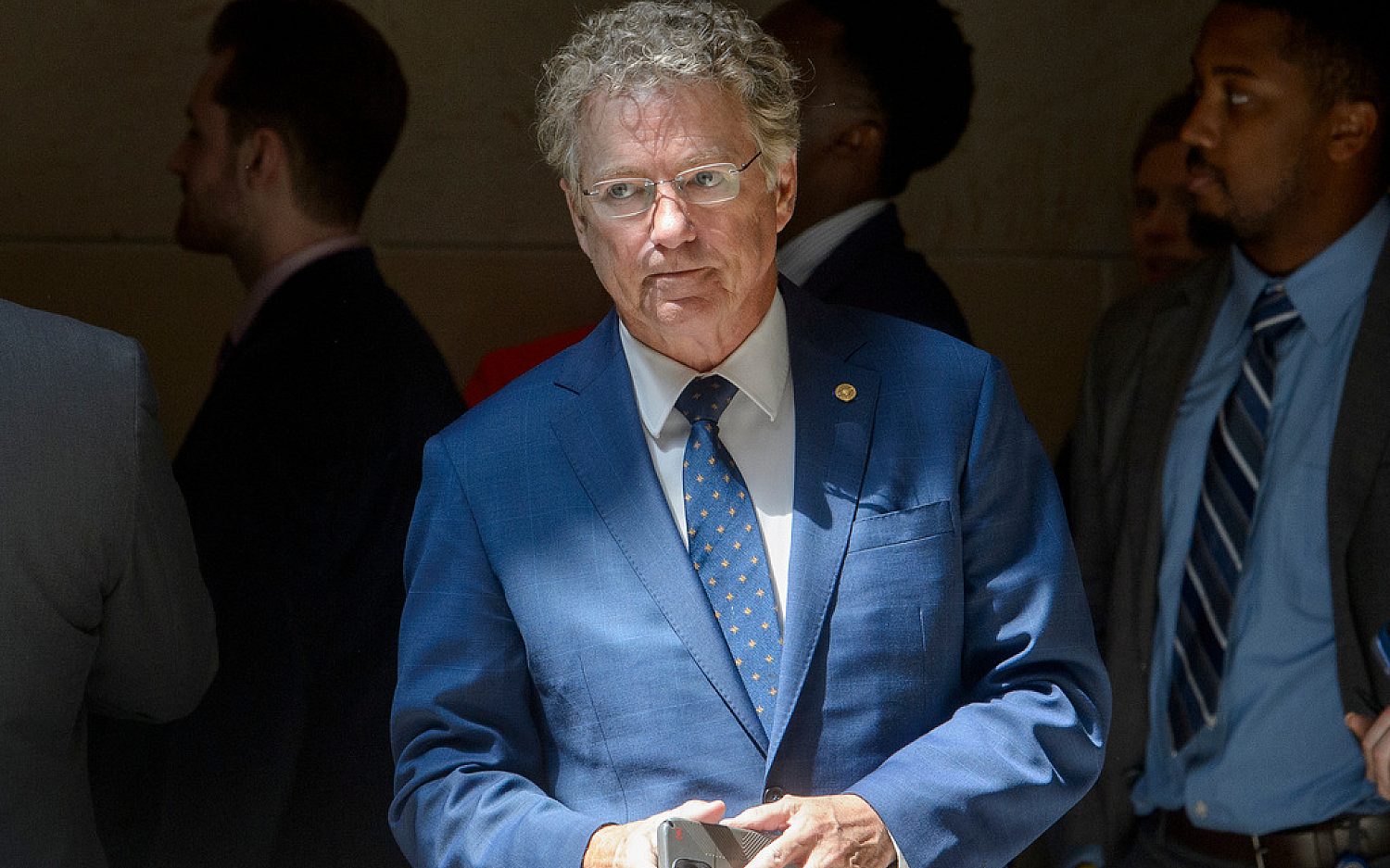A WORLD Book of the Year author on affirming gender
Sam Andreades wrote <em>enGendered</em> based on his studies and pastoral experiences
Sam Andreades spent more than 10 years as the pastor of a church in Greenwich Village in New York City. His new book, enGendered, comes out of his pastoral experience as well as his doctoral dissertation on gender distinction in marriage. WORLD Magazine named enGendered its Book of the Year in the Accessible Theology category. Andreades is now the pastor of Faith Reformed Presbyterian Church in Quarryville, Pa., where he serves with his wife, Mary K. Andreades. He’s also the founder of GAME (Gender-Affirming Ministry Endeavor), a New York City-based ministry of Christian discipleship serving those with unwanted same-sex attractions.
This new book really came out of your pastoral experience, didn’t it? It did. There were three threads that got woven together to make the book, and the big one was being a pastor for 10 years in Greenwich Village in New York City. Immediately, from the beginning, [I was] being confronted with relationship issues and people who struggle with the different questions that the book addresses.
The problem that you had when you were confronting these issues was that, at the beginning, you didn’t have really good answers, right? I remember preparing a sermon on one of the New Testament texts that restrict church eldership to men. I thought I had done such a brilliant job. I previewed this with my wife. I just thought it was great. When I delivered it, I had a young woman right after the service, front and center, whom I respected a great deal. I thought she was going to compliment me on how great the sermon was, but instead, what she said was, “This doesn’t help me.” I said, “What do you mean? That was such a great exposition.” She said, “No, even if I do accept what you’re saying about what I can’t do, it doesn’t move me an inch toward what I can do, what I should be doing as a woman in the kingdom of heaven.” I was cut to the heart at that moment realizing my failure and the church’s failure, in general, to provide young women like these what they really needed, which was a theology of gender.
There’s another story about when you were being examined by a church that was thinking about calling you to be a pastor. A lesbian woman stands up and says … She says, “We sing this song, this hymn, ‘Just As I Am,’ about how Jesus accepts us just as we are. Well, I’m a lesbian.” She says, “Well, if you’re the pastor of this church, will I be accepted in your church?” That was right from the beginning of the ministry. We had to answer those kinds of questions and try to navigate those. That’s a big reason I found great lack in my life in ministry and brought me to this journey.
Was making that answer in a way that was convicting and convincing what you lacked in those early stages and what ultimately led to enGendered, the book? Yes, as I think I also say in the book, there is a time when I had a young man come in from my church, and he was sitting there in my office confessing to me that he was in a gay relationship. Of course, I was very happy he was talking to me about it. As a pastor, we’re always happy when people make it into our office and talk to us. … He was talking to me, and I remember saying, “Hey, let me explain to you.” We went through the Scriptures and marched through and said, “Here’s what the Scriptures say, and this is why we would say this is wrong.” I remember his eyes were really looking at me, pleading as he said, “Hey, can you somehow meet me halfway? Can you help me with the situation I’m in, with this person I really care about?” I didn’t really have an answer for him because at that time, I didn’t really know why God has said what he said in the Scriptures. That’s when I began to realize what I was lacking was a theology of gender, something that the Scriptures can give us if we really look into them. The more I look into the Scriptures, the more I found that the Bible doesn’t give us the traditional family values answer of why it says what it says—why God has told us, for example, to reserve our most intimate relationships to be across the genders, to be intergendered, as I call it. The Bible doesn’t just tell us, “Do this,” or “Don’t do that.” It tells us why we love each other differently as men and women. So I began to realize that with everything that the Bible says, whenever God gives us a prohibition, it’s because he’s trying to exalt something positive.
You brought the story to life in the book by telling an incident that involved your wife, Mary K. She was at an early childhood facility, and a family brought their child dressed in androgynous, gender-neutral clothing. Yes, this was in Park Slope, which is a very gender-minimizing place.
What happened? I understand the way they were thinking. They didn’t want to make their child into any of the gender stereotypes that they thought were harmful, so they were doing their best to try not to impose any kind of predetermined view of gender on their child. They resulted in making the child gender-neutral, as neutral as possible in terms of hairstyle, in terms of clothing. The problem is that young children around that age very much want to know what gender they are. It’s very important to their development and their identity. … One of the other children went up to this child and said, “You’re a boy.” Don’t ask me how he could have understood that, but there was a subtle difference, I think, in sneakers that the child was wearing. The child burst out crying because, alas, she was a girl and she was very upset. She said, “No, I’m not.” He said, “Yes, you are. You’re wearing boys’ sneakers.” The really interesting thing about the situation was that the other child workers really didn’t know how to respond to this. They didn’t know whether it was right to say, “Well, it doesn’t matter whether you’re a girl or a boy,” or how to respond to what the child needed. Mary K. just stepped in and said, “Of course, she’s a girl. It’s something inside. It doesn’t have to do with the clothing.” That comforted the girl, and happy play resumed.
Of course, that gender-minimization project, whenever it gets into teenage years and adulthood, does more than just interrupt happy play, right? It interrupts the maturity and the development of young men and women. If you talk to developmental psychologists, they’ll tell you there are certain phases that we go through, and we need certain things to develop as men or develop as women. They’ve got to happen or else other things go wrong.
The development of living in our gender roles is an important part of that? Yes. That’s why any lesbian couple that I know, any of them that are good parents, any lesbian couple that are parents worth their salt, will take their son, at a certain point, and make sure he’s exposed to a male [role] model, a mentor in some respect. Maybe it’s an uncle; maybe it’s a friend. They want to make sure a man is brought into a young boy’s life so that he can have that mentoring experience because even they want to be good parents, want to recognize this is what’s necessary for the child and the son’s growth.
Listen to Warren Smith’s full conversation with Sam Andreades on Listening In.
An actual newsletter worth subscribing to instead of just a collection of links. —Adam
Sign up to receive The Sift email newsletter each weekday morning for the latest headlines from WORLD’s breaking news team.





Please wait while we load the latest comments...
Comments
Please register, subscribe, or log in to comment on this article.